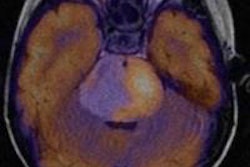Reduced doses for radiation therapy (RT) for pediatric medulloblastoma at the primary tumor site work just as well as standard doses, according to a study presented at this week's American Society for Radiation Oncology (ASTRO) meeting in Boston.
However, lower doses of craniospinal axis irradiation were associated with worse survival, said a team led by Dr. Jeff Michalski of Washington University in St. Louis.
The findings are part of a phase III trial from the Children's Oncology Group. The study included data from 464 patients ages 3 to 21 with average risk of medulloblastoma. Of the total cohort, 237 patients received a standard radiation boost volume to the posterior fossa and 227 received a reduced dose of involved field RT. In addition, 226 patients ages 3 to 7 were randomized to receive a standard irradiation dose of 23.4 Gy to the craniospinal axis or a reduced dose of 18 Gy.
The researchers tracked outcomes measures such as the amount of time from study entry to disease progression, disease recurrence, death from any cause, or second malignant neoplasm.
Michalski's group found that reducing the volume of RT boost to the posterior fossa did not compromise survival in pediatric patients with average-risk medulloblastoma. However, reduced craniospinal irradiation was associated with lower rates of event-free and overall survival for the youngest pediatric patients, according to the researchers. A standard dose to the craniospinal axis should be used, they concluded.


















